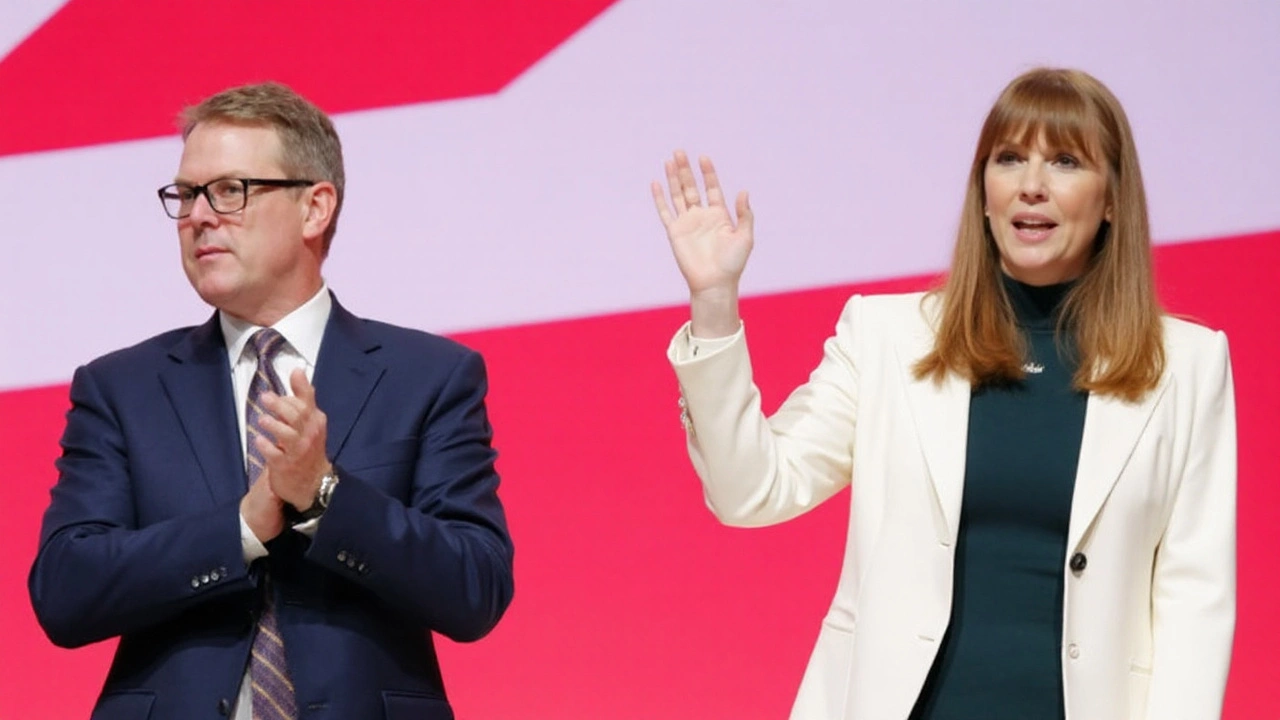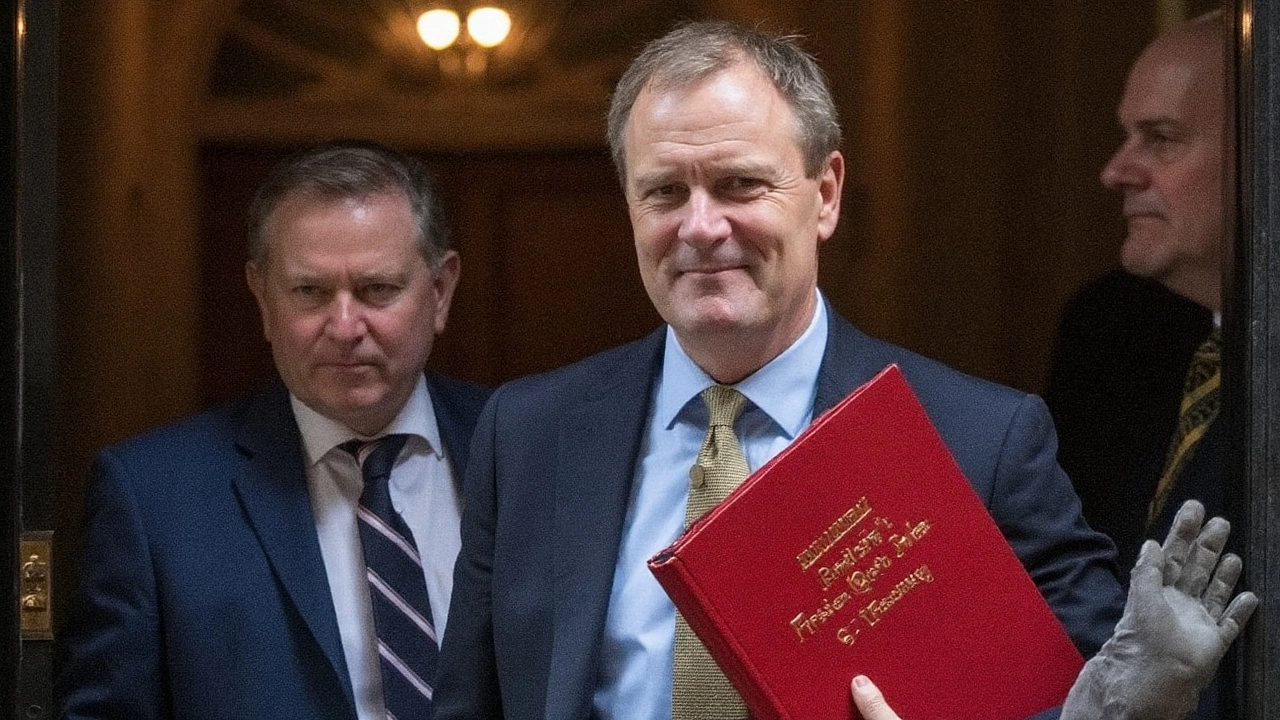Angela Rayner Resignation Hits Starmer Hard, Exposes Strains with Labour’s Left
 Sep, 7 2025
Sep, 7 2025
The Prime Minister did not want this. In a handwritten note that called his deputy a “true friend,” Keir Starmer made plain he valued Angela Rayner as more than just a senior colleague. But politics runs on the currency of standards. A tax underpayment issue left Rayner exposed, and in the end she quit—taking with her the most effective bridge between Starmer’s leadership and Labour’s left.
This is a loss with layers. Rayner brought reach the government struggled to replicate: a straight-talking union organiser who rose through care work to the top of politics, a living, breathing example of the social mobility story Starmer wants as his legacy. She spoke a language that resonated with activists, with workers, and with voters who do not spend weekends reading policy briefings. Losing that voice at the top table hurts.
Inside the party, Rayner’s status went beyond her job title. She gave legitimacy to Starmer’s project in places where scepticism runs deep. For parts of the left and the trade union movement, her presence said: this government remembers who sent it to Downing Street. That is harder to say today.
What forced the resignation
Rayner’s position became untenable after a tax underpayment issue came to light. The details have not been spelled out line by line, but the principle is familiar: the bar for ministers is higher than for the rest of us. Conflicts over tax and financial compliance have undone senior figures before, even when there is no allegation of criminal intent. When the facts sit uncomfortably with the standard of public life the government claims to uphold, pressure builds fast.
The handling followed a well-worn script. There were talks with advisers, legal checks, and conversations with the Prime Minister. The calculation in No. 10 was blunt: keeping Rayner would turn every interview, every parliamentary question, into a test of Starmer’s credibility on ethics. The decision cost him a powerful ally. He did it anyway.
Two things can be true at once: this was a standards call, and it was also a political disaster. The government loses a communicator who could defend policy in plain English and cut through on broadcast rounds. In a Westminster culture that still struggles to hear voices from working-class backgrounds, Rayner’s departure feels like more than a reshuffle. It feels like a step back from a promise to broaden who gets to lead.
There’s a wider context too. In recent years, tax controversies have ended political careers and defined narratives about integrity. Voters may not follow every line of a ministerial code, but they recognise the smell test. Starmer has bet heavily on probity as part of his core brand. That explains why he accepted a resignation he clearly did not want.

What it means for Starmer and Labour
Every government is a coalition, even when one party holds a majority. Starmer’s coalition stretches from social democrats who want quiet competence to a left that wants bolder change on workers’ rights, public services, and wealth. Rayner made that coalition feel workable. Without her, the centre of gravity shifts.
The first test is internal: party management. Rayner had deep ties with unions and grassroots activists. She could sell compromise without sounding like she had forgotten where she came from. That talent is rare. The government now needs a new ambassador to the movement that funds and organises Labour. Whoever steps into that role will not have Rayner’s biography, and that matters more than Westminster often admits.
The second test is policy. Rayner anchored conversations on fair work and social mobility. She pushed the message that growth and dignity at work are not competing goals. Stripped of that voice, the government will have to work harder to keep trust while it moves slow, complicated reforms through Whitehall.
Then there’s the public argument. Opposition parties have been handed an easy line of attack: if standards are the priority, why did it get this far; if this was unavoidable, what does it say about judgment? That will dog Starmer in the Commons and on the airwaves. It also crowds out the government’s agenda at a time when it wants to talk about delivery.
The practical politics inside Parliament now shifts too. Rayner, from the backbenches, will not vanish. She has a support base, a media platform, and a habit of landing punches in plain language. If she chooses to engage on specific issues—workers’ rights, local power, cost-of-living pressures—she could shape debates from outside government in ways that are uncomfortable for No. 10 but energising for parts of the party.
None of this means open warfare. There is no sign Rayner plans to undermine Starmer. But dynamics change when a figure with her profile is no longer bound by collective responsibility. A question put by Rayner from the backbenches carries a different weight than the same question asked in private in a Cabinet room.
Personnel is the next headache. Replacing a deputy who doubled as an envoy to the left is not just about filling a chair. It is about filling a gap in the story the government tells about who it stands for. A technocratic appointment may steady the machine. It will not replace the trust Rayner built with people who judge politics by life experience as much as by policy PDFs.
There’s also mood and momentum. Governments are at their most effective when they look united and purposeful. A high-profile resignation over tax knocks both. It invites a narrative—fair or not—that the centre cannot hold. Starmer will try to close that story down fast with a tidy reshuffle and sharper messaging on delivery.
Outside Westminster, union leaders and local organisers will read this moment as a signal. Does the government want a tighter, more cautious project, or can it still carry the hopes that sent activists door to door? Reassurance will need to be more than warm words. It will need public steps on fair pay, secure work, and living standards—things Rayner championed in terms people understood.
The public, for its part, is likely to take a split view. Many will shrug at the internal drama and care about bills, wages, waiting lists, and crime. But trust is the thread that runs through all of it. Starmer cannot afford to preach standards and look wobbly when tested. That is why the price of this resignation is so high: it hits both capacity and credibility.
The immediate questions now hanging over Downing Street are simple and sharp:
- Who takes over as Deputy Prime Minister, and can they speak to the same audiences Rayner reached?
- How will No. 10 rebuild ties with the party’s left and the unions without sounding defensive?
- What further transparency will be offered on the tax underpayment issue to close down speculation?
- How does the government keep its reform agenda front and centre while this story still has oxygen?
Rayner’s future is the other live story. Wounded is not finished. Plenty of political careers have survived bruising exits, especially when the person leaving still has something the system needs. Rayner brings authenticity that does not come off a production line. She can organise, campaign, and connect.
If she chooses to rebuild from the backbenches, she will not lack a platform. Select committee work can turn into policy influence. Campaigning on workplace rights and social mobility can frame debates the government must answer. And if the party hits rough waters, the simple fact of her presence in the Commons will shape how members think about who speaks for them.
For Starmer, the task is to show this was a painful but principled decision, not a sign of drift. That means quick moves: settle the succession, restate the mission, and demonstrate progress that reaches everyday life. Politics forgives mistakes more easily than it forgives drift.
In the end, standards and power have collided in a way that is all too familiar in British politics. The Prime Minister enforced the rules he says matter. He also lost his best translator to the party’s beating heart. Both things are true. How he navigates that gap—without Angela Rayner at his side—will define more than a news cycle. It will shape whether his government can carry both its own party and the country with it.